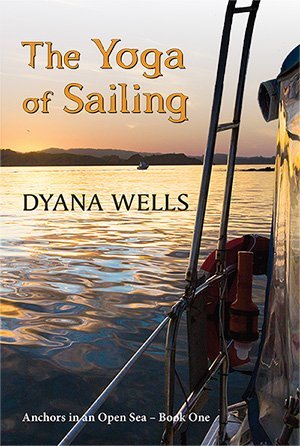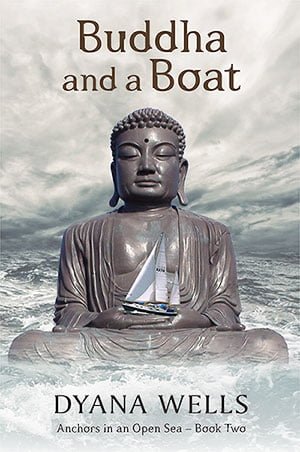NOVEL EXCERPT
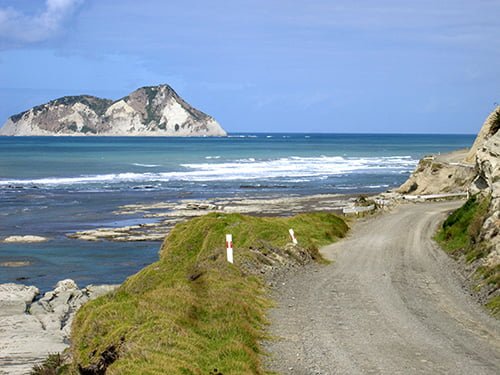 East Cape was a landscape of silvery-leaved pohutukawas, grand old puriris, rocky coves and dark blue water. I was cycling in the middle of summer, a pleasure not for the fainthearted. On big hills I pushed my bike up through sticky tar that glowed black jewels and almost threw up from too much sun and too little water. Plump, juicy blackberries hung down over the road and I stewed them up for breakfast and dinner.
East Cape was a landscape of silvery-leaved pohutukawas, grand old puriris, rocky coves and dark blue water. I was cycling in the middle of summer, a pleasure not for the fainthearted. On big hills I pushed my bike up through sticky tar that glowed black jewels and almost threw up from too much sun and too little water. Plump, juicy blackberries hung down over the road and I stewed them up for breakfast and dinner.
I cycled through wide open spaces, wheels rolling under the steady rhythm of my feet pushing down on the pedals. I was caressed by the wind and wild flowers. I followed the sun from dawn ‘til dusk and fell into a boundless emptiness. I remember stopping for lunch past the Kereu river, sheltering from the sun in the branches of an old pohutukawa. I bit into a wild peach, plucked from where the snaking Motu River meets the sea. I was all alone, with noone to hold me to the human point of view. The steady turning of wheels quietened my mind down, softened the edges. My mind rested on a hovering sparrow, a flower spray of blue moths fluttering above golden grass, the sparkling rolling sea. It stayed wherever I placed it; it didn’t move except to sink into what I was looking at.
I worried about being on my own, even though I wouldn’t admit it.
The first few days I imagined Laura with me. In my journal I wrote: ‘The bread’s in crumbs and they taste delicious. The honey’s run out of the jar and I’m licking it off everything. Your bedroll is soft on the pebbles and I pace myself up the hills by pretending you’re in front. I need a swim but you always go in first.’
I wrote: ‘The playful breeze lifting my clothes and tickling my body is the same as gentle waves, bubbling the edge of the sand. My veined, wrinkled hand, this driftwood, our past similarly carved into form.’ My mind slipped behind what it was looking at, into a soft, clear, intelligent light. The light became seashells and falling leaves in its dance with me. In a direct way I beheld the universe as one verse; everything was the same: my hand, the driftwood, the gentle waves, the same. It didn’t seem strange; it seemed natural, obvious. Laura disappeared and I became contented in a way I had never known.
Then I slipped further away, behind the soft intelligent light that turned into seagulls, back behind to a place that held the very possibility of perception, the very possibility of experience as a miracle. I stood on the beach and looked at the seagulls. We were all suspended in space; this space was suspended in mind, unfathomable mind, where perception is the magician’s wand. I had no idea how a universe could possibly arise from this place, but it did. It was as if a magician waved a wand and the world rabbit appeared from the void, moment by moment. The seagull was renewed with every wave of the wand, every moment of perception.
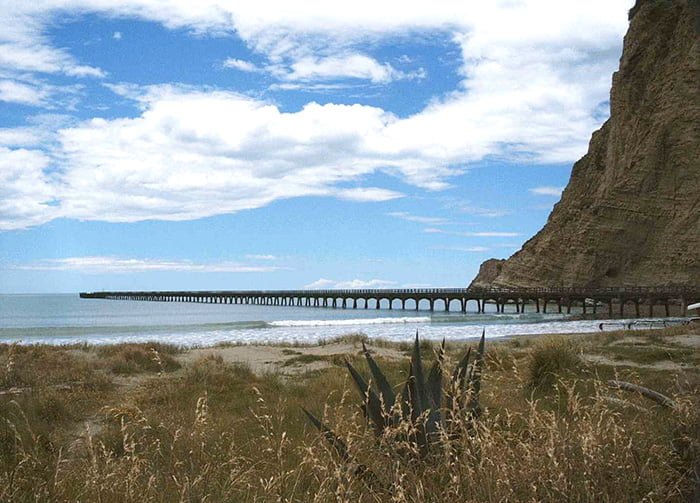
I saw that perception, which I had always taken for granted, was a most extraordinary phenomenon. Perception brings a world to life. Perception creates something out of nothing, the actual out of potential. Mind, moment by moment, constructs seagulls, driftwood, me and the mercurial sea.
I walked slowly back across the sand; my mind gathered itself back into my body. Everything around me was as it had been before. Campers were eating at plastic tables, clipped open, not far from their cars. Seagulls faced into the wind like sentries. I watched the sun sink below far tree-scaped hills. The sea turned orange; its sparkles disappeared. The fading light dressed the sea in an evening gown of slinky, wrinkled velvet and then the water turned grey. Seagulls cried; swell broke on the shore; I walked to my tent and snuggled down into my feathery sleeping bag. I felt so safe on the ground. There was nowhere to fall.
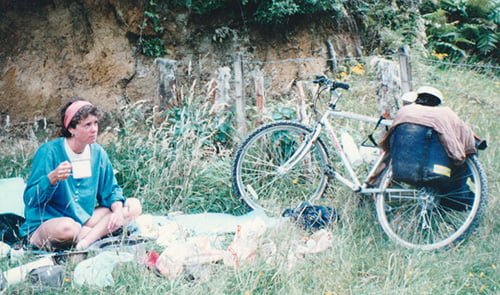 I slept on a different beach every night and always packed early, so I could get over the hills before the heat. Down at a stream one morning, where I was scouring dishes with sand, a fellow camper enquired, ‘Do you like crayfish?’
I slept on a different beach every night and always packed early, so I could get over the hills before the heat. Down at a stream one morning, where I was scouring dishes with sand, a fellow camper enquired, ‘Do you like crayfish?’
I looked up at very ordinary kiwi bloke. ‘I love crayfish!’
I had forgotten how to speak until I started and then I couldn’t stop. I wanted to share my adventures and stories; I wanted to say how amazing life was that I should be sharing crayfish with them in their tent. The sun was climbing. I packed a crayfish and six paua into my panniers for later, swung onto my bike and waved like a soaring gull. I pedalled off into the miraculous. However their truck stopped at the bottom of the next hill so I threw my bike into the back and soared to the summit, face into the wind. The whole of life was an extraordinary outpouring of generosity.
Summer was as long as forever, cycling into Waihau Bay. On a dusty gravel road I passed a local store, pumping gas and selling bread. My legs hung over a jetty as my tongue curled around a boysenberry ice-cream. Childhood was as close as the sprats swimming around the slimy poles. I stared into pure blue water and poked at limpets and barnacles. I found the mind I was before words claimed it for someone else’s story. The child mind of wonder is creamy uncurdled custard before language dries it into lumpy stodge.
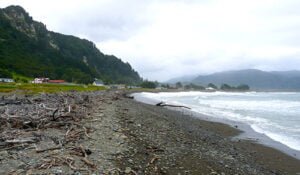 I pedalled on around the top off the cape, into marginal farm country full of ragwort, blackberry and flowering gorse. Scrawny animals browsed between the weeds and kahikatea. At the Oweka stream, I splashed in the cool water blinking salty sweat from my eyes, then feasted on crayfish, leaving the carcass for the blowflies. Sunk in long grass, warm breeze caressing my face, I let the bubbling stream trickle through my empty body.
I pedalled on around the top off the cape, into marginal farm country full of ragwort, blackberry and flowering gorse. Scrawny animals browsed between the weeds and kahikatea. At the Oweka stream, I splashed in the cool water blinking salty sweat from my eyes, then feasted on crayfish, leaving the carcass for the blowflies. Sunk in long grass, warm breeze caressing my face, I let the bubbling stream trickle through my empty body.
I wondered about time and memory, concepts that hadn’t troubled me before. I used the words like everyone else, without thinking. Now they rose up like signposts, big words, telling me something about myself. Cycling day after day into the present, I realised I was losing my familiar sense of ‘me.’ Lying next to this trickling stream, I watched my mind flicker away into past and future, drawing on memory to keep ‘me’ alive. I remembered painting the walls of my home, helping Laura with her history exam, snuggling up to Madeleine. I got the scary inkling that I only existed as these memories. I watched the images pass by: practising Tai Chi, digging my garden, helping children at school into headstands and complicated yogic poses. This was ‘me’ in the realm of time. Without these memories I didn’t exist. I didn’t want to exist.
Dyana plans to finish her “Living Exploration” novels and have them published during 2016. Fill in the subscription form on any page to stay tuned for updates.

